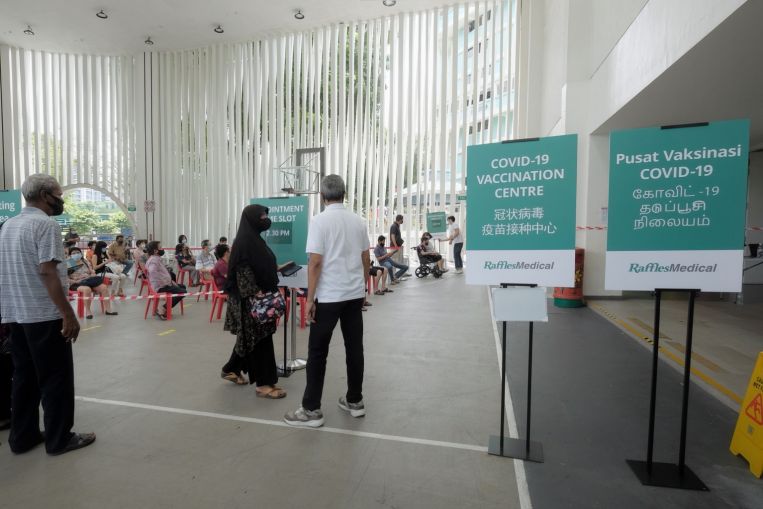SINGAPORE- Raffles Medical Group on Monday (July 26) announced a doubling in earnings in the first half of the year compared to a year ago, boosted by its support for Singapore’s Covid-19 initiatives.
With the country ramping up its vaccination drive and more quick test centres being set up, the company sees further support for revenue over the short term and expects to be more profitable in 2021 compared to 2020.
As inoculation rates rise and the pandemic eases though, those revenue streams and the capital invested to scale up the company’s pandemic response are expected to come under pressure. But new and more sustainable income streams are on the cards, executive chairman Dr Loo Choon Yong told The Straits Times.
Raffles Medical made $343.8 million in revenue in the first six months of the year, up 42.4 per cent from the same period a year ago, backed by growth in its healthcare and hospital services divisions. Earnings for the period more than doubled to $39.4 million compared to a year ago.
The company expanded its operations beyond air-border screening and pre-event testing to include vaccination centres, pre-departure swabbing of cruise passengers, as well as operating dedicated polymerase chain reaction testing centres to conduct tests for those exposed to new Covid-19 clusters as they emerged.
Dr Loo said Raffles Medical was able to mobilise its workforce and quickly deploy them across workers’ dormitories, vaccinations centres and clinics across Singapore to support the Government’s Covid-19 response.
He added that the company was able to deploy foreign nurses and doctors from its hospitals and clinics in China and Vietnam to help with swabbing and testing. It also assembled around 1,600part-time workers, including housewives and students, to help across its 17 vaccination centres in total.
“We bill the Government for swabbing and testing. We generate revenue from self-paying travellers who need pre-departure tests done. Changi Airport Group pays us to test incoming visitors. We are also paid to test cruise travellers before they board as well as the ships’ crew,” Dr Loo said.
Depending on how long immunity will last after the first shots of the vaccine, the next phase of revenue for the company will be to administer booster shots to the population as and when needed, he added.
Dr Loo said that as Covid-19 becomes endemic in Singapore and with most people already vaccinated, many vaccination centres at community clubs and the airport will be decommissioned. Revenue will then come from testing and treating occasional outbreaks of the virus.
People are now less afraid of Covid-19 compared to last year. “More patients are coming back for health screening. Attendance at our clinics is actually already back to pre-Covid levels”, Dr Loo added.
“At any given time, we are also administering a range of vaccines such as HPV, tetanus and hepatitis B that contribute to our revenue. And when Singapore reopens, many of our overseas patients will return for medical treatment,” he added.
One concern is not being able to generate sufficient returns to make “millions” worth of investments in molecular testing machines worthwhile.
Dr Loo said some of these equipment can be used to test for viruses like influenza. But with testing volumes likely to dwindle in the months ahead, most of the equipment will be under-utilised and depreciated over time.
Raffles Medical can expect to book new sources of revenue from its hospitals in China though. The company officially opened Raffles Medical Shanghai on Monday, bringing the number of its hospitals in China to three. It operates two other facilities in Chongqing and Beijing.
These hospitals cater to expatriates in China as well as the mid- to upper- class segment of the market. “We target those who are able to pay out-of-pocket or afford insurance”, Dr Loo said.
Shares of Raffles Medical closed the day at $1.32, up 9.09 per cent from its previous close.













































